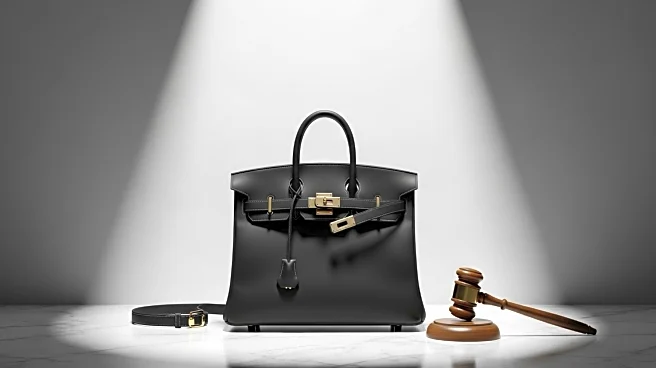What's Happening?
Hermès has successfully convinced a U.S. judge to dismiss a class action lawsuit for the second time, which alleged the luxury brand violated antitrust laws by requiring customers to purchase other products to qualify for buying a Birkin bag. The lawsuit claimed Hermès used a 'hidden lottery system' to restrict access to the bags, which are highly sought after and can cost thousands of dollars. U.S. District Judge James Donato ruled that reserving the Birkin bag for high-paying customers does not constitute an antitrust violation. The dismissal is with prejudice, preventing the plaintiffs from refiling the case.
Why It's Important?
The ruling reinforces the legal boundaries of luxury brand sales practices, particularly concerning exclusivity and customer access. Hermès's victory may set a precedent for other luxury brands facing similar legal challenges. The case highlights the tension between consumer rights and brand strategies in the luxury market, where exclusivity is a key selling point. While Hermès maintains its competitive market position, the decision may influence consumer perceptions and expectations regarding access to high-end products. The outcome could impact how luxury brands structure their sales and marketing strategies.
Beyond the Headlines
The lawsuit and its dismissal bring attention to the broader issue of accessibility in the luxury goods market. The exclusivity of products like the Birkin bag is a significant part of their allure, yet it raises questions about fairness and transparency in sales practices. The case may prompt discussions on ethical considerations in luxury retail, including the balance between maintaining brand prestige and ensuring equitable consumer access. As luxury brands navigate these challenges, they may need to consider the implications of their sales strategies on brand reputation and customer loyalty.









